
The Best New Nonfiction Books Out in October 2022
Fall is underway, and my favorite part of the season is when it’s cool enough to sit outside at a coffee shop and sip a hot caramel apple cider while diving into a new book. More often than not, the books in my stack are nonfiction. It is one of my favorite genres, and this month brings a wealth of new nonfiction books from which to choose! (There are also great novels out, too, like Malinda Lo’s A Scatter of Light and Veronica Roth’s Poster Girl, but I digress.)
When it comes to nonfiction, I’m not picky: I’ll read almost anything, as long as it captures my interest and is well-written, with bonus points if it makes me think about something I never really thought about before. Lucky for me (and you!) there are a bunch of great nonfiction books being published this month: memoirs, sociological explorations, science books by notable figures, parenting books, essays, and much more.
I’ve rounded up ten new nonfiction releases that you’ll want to check out, including books exploring disability justice, religious identity, family, queer identity, intergenerational trauma, and the pandemic. This is by no means an exhaustive list of the books being published this month, and if you’d like to explore even more great books, check out the Book Riot’s New Release Index. Get your library cards ready, grab your favorite fall beverage, and let’s go!

Feral City: On Finding Liberation in Lockdown New York by Jeremiah Moss (October 4th)
When the pandemic first struck in 2020, half a million NYC residents left the city. Those who left were mostly rich, with considerable influence. Moss explores the impact this had on the city in this book – biking through empty streets, seeing who gets to explore, emerge, and flourish once the controlling, dominant crowd is gone. He posits that without the “hypernormal,” NYC was able to become more creative and connected than it had been in a long while. But this isn’t just an examination of pandemic NYC; Moss braids personal anecdote, cultural analysis, and queer theory into this narrative, resulting in a compelling narrative of the pandemic from a viewpoint not yet seen.
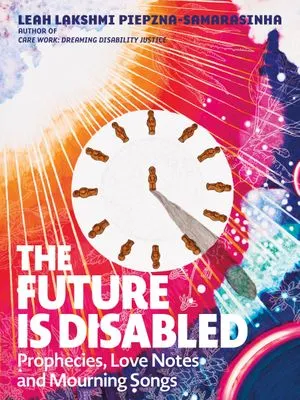
The Future is Disabled: Prophecies, Love Notes, and Mourning Songs by Leah Lakshmi Piepzna-Samarasinha (October 4th)
In this book, Piepzna-Samarasinha asks the question of what if – in the not-so-distant future – most people are disabled, and that isn’t a bad thing? They explore how disability justice is an integral part of the future we want to see, a future free of fascism and white supremacy, a future built on communal aid and care, and how disabled wisdom can help save us all. They wrote this over the last two years of the pandemic, bringing in a variety of issues, questions, and thought-provoking topics – and plenty of fierce passion and joy. Piepzna-Samarasinha reminds us of the future we envision, and shows us the possibilities inherent in each other.
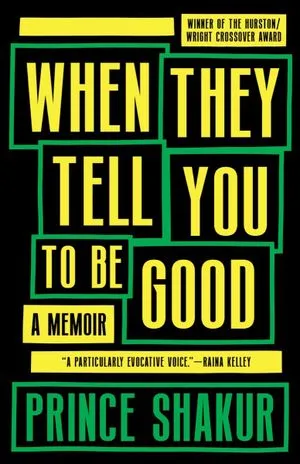
When They Tell You to Be Good: A Memoir by Prince Shakur (October 4th)
Shakur’s biological father was murdered in 1995, resulting in family secrets coming to light. His family immigrated to the US from Jamaica, and Shakur writes about not only coming to terms with everything he learns after his father’s murder, but also growing up in the Afro-diaspora, navigating America in the time of Trump, and coming of age as a queer anarchist writer and activist. This is a powerful story of identity, the effects of intergenerational trauma, and what one believes in.
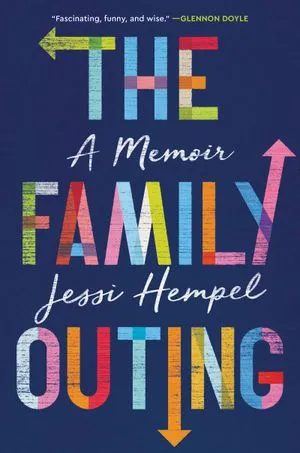
The Family Outing: A Memoir by Jessi Hempel (October 4th)
Growing up, Hempel’s family looked pretty typical: mom, dad, three kids. But in reality, her SAHM was lonely, her dad traveled a lot, and Jessi and her siblings struggled emotionally. By the time she was an adult, Hempel had come out as gay, her sister as bisexual, her father as gay, her brother as trans, and her mother as a survivor of a traumatic encounter with an alleged serial killer. All of these truths led to personal journeys for each of them, as well as exploring family bonds and healing.
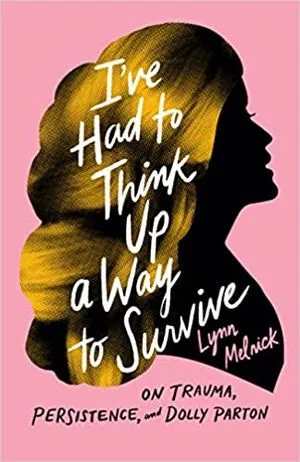
I’ve Had to Think Up A Way to Survive: On Trauma, Persistence, and Dolly Parton by Lynn Melnick (October 4th)
In this work that blends memoir and cultural criticism, Melnick looks at Dolly Parton – feminist icon, sex symbol, inspiration, and more – and Parton’s impact on her life. Each chapter focuses on one of Parton’s songs, and within those chapters, Melnick explores rape culture, sexual violence, art, family, relationships, feminism, sex work, motherhood, and plenty more. She writes about the complexities and nuances of a public figure, the layers to oneself that trauma can impart, and what people find on the way to recovery.
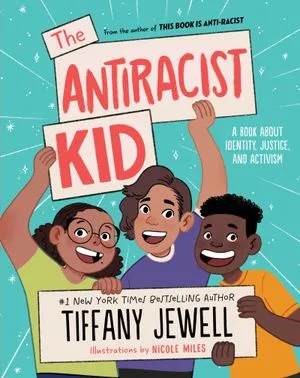
The Antiracist Kid: A Book About Identity, Justice, and Activism by Tiffany Jewell, Nicole Miles (October 4th)
If you loved Jewell’s book This Book is Anti-Racist, you’ll want to check out this book, too – especially if you have younger kids in your life. This practical, engaging book is perfect for kids (I’d say elementary/upper elementary) to read, look at, and learn from. Jewell writes about systemic racism, identity, and justice in accessible ways, provides practical and actionable ways for kids to get involved and to learn, and is a perfect primer for lots of further conversations with caregivers and friends. (It’s also an easy intro for caregivers or teachers, if you need some tips on framing issues and topics for the kids in your life.)
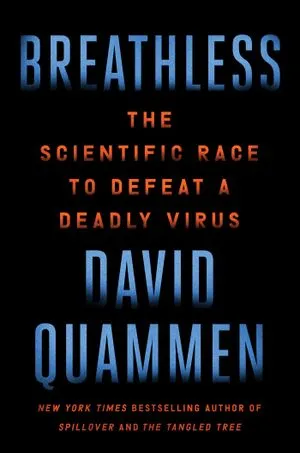
Breathless: The Scientific Race to Defeat a Deadly Virus by David Quammen (October 4th)
Quammen’s book Spillover was one that many people returned to in the early period of the pandemic, and so this book is much-awaited. This book chronicles SARS-CoV-2 and how it spread through the human population – from the point of view of scientists. Quammen writes about the constantly-changing nature of the virus, the likelihood of it being around forever, and ways it might be able to be controlled or managed. He also details how many saw the pandemic coming, but their warnings were ignored for various reasons, and what scientists are doing right now.
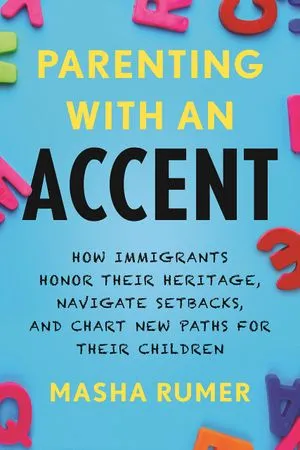
Parenting With An Accent: How Immigrants Honor Their Heritage, Navigate Setbacks, and Chart New Paths for Their Children by Masha Rumer (October 4th)
This one may be cheating a little because the hardback came out last year – but the paperback comes out this month, and I’m including it here. Rumer, an immigrant from the former Soviet Union, writes about being an immigrant parent in the U.S. and raising children here while at the same time, trying to preserve their own personal and cultural identities. She blends her own stories with interviews of other immigrant families, exploring various issues in an insightful and even humorous way.

Bad Jews: A History of American Jewish Politics and Identities by Emily Tamkin (October 18th)
In this fascinating book, Tamkin explores the concepts of being a “good Jew” and “bad Jew,” and so much more. She explores issues of immigration and assimilation, as well as how the rise of anti-semitism impacts American Jewish identity right now. Exploring the last 100 years of American Jewish culture, history and politics, she looks at a variety of experiences and talks to Jews of diverse backgrounds and viewpoints to illustrate how layered and complex the American Jewish experience is.
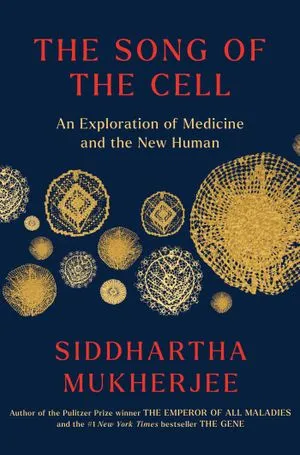
The Song of the Cell: An Exploration of Medicine and the New Human by Siddhartha Mukherjee (October 25th)
Let’s just be honest for a second: at this point, I would read Mukherjee’s grocery lists. I love his writing. So I was especially excited to learn about this book coming out. He looks at medicine, but particularly our fairly new ability to manipulate cells. Mukherjee delves into the history of cells: their discovery, how they came to be understood, and how they were applied to our knowledge of the human body, medicine, and wellness. His writing is brilliant but accessible, and brings even the smallest things – cells – to life in captivating detail.
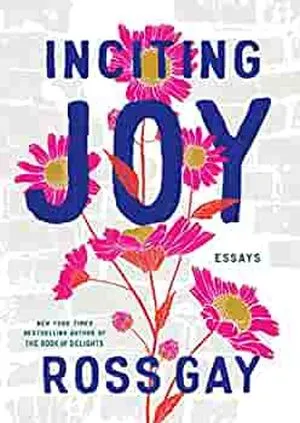
Inciting Joy: Essays by Ross Gay (October 25th)
In this day and age, when our society feels more fractured than ever, what could happen if instead, we sought out what brings us together, what we love? This is what Gay is considering in this book. It’s an essay collection that explores the joy and happiness we can create when we care for each other, especially during hard times. Gay is a poet, and this is evident in his prose. It’s a perfect book to read for fall, when we’re looking for some extra warmth.
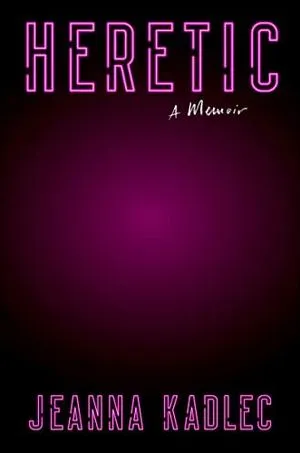
Heretic: A Memoir by Jeanna Kadlec (October 25th)
Kadlec grew up in the church, was married to a pastor’s son, and had a nice life ahead of her – except she knew she was queer, and in order to survive, she would have to leave her church and everything she knew. This book blends memoir and cultural criticism, exploring the evangelical movement and its reach into politics, society, and American culture – and the devastating effects it has had. This is a powerful book that looks at religion, class, culture, and identity, and carving out a path all your own.
Which one are you reading first?
If you’re looking for even more nonfiction, check out this post on the best nonfiction books of the last decade, and new nonfiction that came out this past summer.










